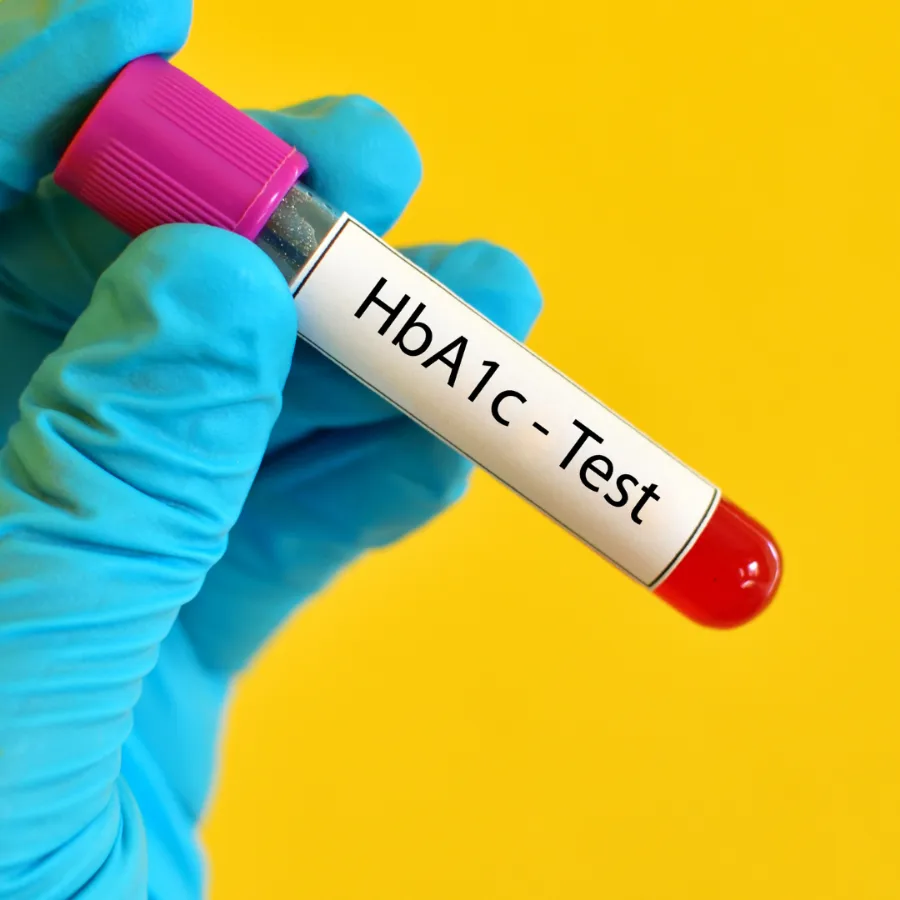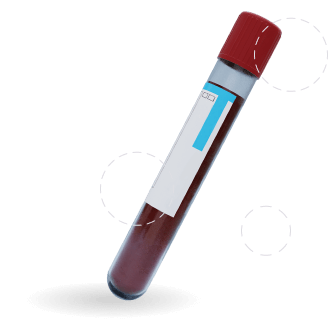
Medical Weight Loss Explained
A lot is said about medical weight loss but we are here to debunk the myths for you.
Blood Tests > HbA1c Blood Test

Find Out More


The HbA1c blood test (also known as the A1C test) plays a vital role in diabetes management. It provides a comprehensive assessment and valuable insights into your average blood sugar levels over a specific period, and is a vital tool in monitoring and managing diabetes.
Our clinic provides the HbA1C test as a standalone test or as part of our comprehensive Platinum Blood Profile.

An HbA1c blood test measures the percentage of glycated haemoglobin in the blood. Haemoglobin is a protein in red blood cells responsible for carrying oxygen throughout the body. When blood sugar levels are high, glucose molecules attach to the haemoglobin, forming glycated haemoglobin.
Unlike regular blood sugar tests, which only provide a snapshot of glucose levels at a specific moment, the HbA1c test offers a more comprehensive picture. It determines the proportion of glycated haemoglobin, which is directly related to average blood sugar levels over a timeframe of two to three months. This long-term view allows your doctor to identify trends and evaluate the effectiveness of treatment plans.
When left untreated, diabetes can seriously impact your health. That’s why monitoring your blood glucose levels is so important.
For individuals with diabetes or a family history of the condition, regular HbA1c tests are essential for effective management and, in some cases, prevention. The results of these tests help you and your healthcare provider make informed decisions, adjusting medication dosages, tailoring treatment plans, and making lifestyle changes.
Regular monitoring of your HbA1c levels helps maintain stable blood sugar, reducing the risk of complications such as nerve damage, kidney disease, and eye problems. It also helps you feel better day to day, with more energy and fewer diabetes-related symptoms.
If you want to check your diabetes status or need regular monitoring for your condition, call or book online with us today.


We recommend the HbA1c test if you:
Properly managing diabetes through medication, lifestyle changes, and regular check-ups reduces your risk of associated conditions. However, if left untreated (or poorly managed) complications may arise, including:

Use our online booking engine or book your test by giving us a call.
On the online booking engine select the “appointment type” you need.
You will be seen by one of our friendly phlebotomists or trained clinicians.

For an HbA1C test, fasting is not necessarily required (your healthcare professional will discuss everything you need to do or not do beforehand).
However, it is recommended if you also wish to test your fasting blood glucose level. Ensure you are well-hydrated before the test, please.

During an HbA1c blood test, a healthcare professional will draw a sample of blood from a vein in your arm using a needle and syringe. The blood sample is then sent to a laboratory for analysis.

Your result will be sent to you via email within a maximum of 12 hours from the time of your test.
No
Hidden Charges
Transparent fees. The price you see is the price you pay.
No GP consultation
needed
No GP appointment requirement for blood tests
Established
since 1998
Experienced doctors & a professional team.
Strictly
confidential
Your medical records are kept private at all times.
1 Biomarker
We offer a wide range of private blood tests in London. Same-day appointments are available 5 days a week.
We work with experienced consultants & healthcare professionals who have received positive feedback from our patients, and with whom we have established long-term relationships.
Latest Episode
Tune in to our podcast to explore the world of healthcare and learn from distinguished special guests. We cover everything from preventative measures to cutting-edge treatments so that you can stay informed and up-to-date on health-related things.

A lot is said about medical weight loss but we are here to debunk the myths for you.

Tourist in London and need a GP? Get fast, private care for illnesses, injuries, or lost medication. No registration needed.

With NHS appointments harder to access, many people are turning to private GPs for faster, more convenient care.
Subscribe for latest updates & news


From same-day private GP and blood test appointments to visa medicals, a sexual and reproductive health clinic, and preventative health screenings, we are here to help.
Contact Us
Accepted Insurance Companies






Please note that Walk-in Clinic is a private medical centre & not an NHS service. Harley Walk-in Clinic Ltd company registration no. 07472804